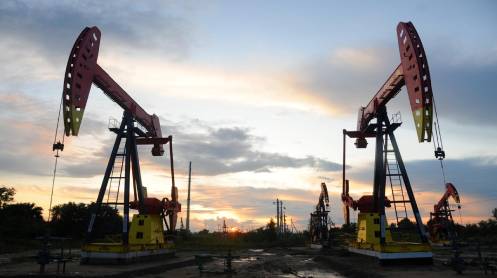ISLAMABAD: The government’s efforts to implement the Weighted Average Cost of Gas (WACOG) formula for biannual gas tariff determination, which blends local and imported RLNG prices, have encountered significant opposition.
Sindh Chief Minister has strongly opposed the formula, arguing that it violates Article 158 of the Constitution, which stipulates that the province producing the gas has the first right to use it. This sentiment was echoed by officials from the Energy Ministry, who emphasized the need for constitutional compliance.
Prime Minister Shehbaz Sharif, on April 17, formed an 11-member committee to review and provide recommendations on the WACOG formula. The committee, led by the Minister of Petroleum, includes ministers for power and industries, relevant secretaries, and the chief secretaries of all four provinces. The committee was tasked with reporting its findings within seven days, highlighting both the positive and negative implications of the WACOG formula.
Currently, the Oil and Gas Regulatory Authority (Ogra) determines separate tariffs for domestic natural gas consumers and LNG prices for the power sector. The federal government aims to implement WACOG to reduce gas tariffs for Punjab’s industrial sector, high-end domestic consumers, and RLNG-based power plants.
During the committee’s first meeting, the Sindh Chief Minister reiterated his opposition to WACOG, asserting it contradicts Article 158. Sindh maintains that RLNG imports should cater solely to Tier-II natural gas consumers and that WACOG would unfairly burden Tier-I consumers with high imported RLNG costs. Khyber Pakhtunkhwa (KP) and Balochistan also opposed WACOG, citing sufficient gas production for their needs and the federal government’s practice of purchasing gas at low prices and selling it at higher rates within these provinces.
Under the previous PTI government in 2020, a similar WACOG initiative faced opposition from Sindh, which deemed it unconstitutional. Sindh produces 61% of Pakistan’s natural gas, followed by Balochistan (21%), KP (15%), and Punjab (2%). However, natural gas consumption is highest in Sindh (44%) and Punjab (34%), with Balochistan and KP consuming 15% and 7%, respectively.
Initial analysis indicates that WACOG enforcement would increase average tariffs for domestic consumers by over 91%, raising prices from Rs1,200 to Rs2,300 per mmbtu. Conversely, industrial sectors, including fertilizer and commercial sectors, could see a 25% reduction in gas tariffs. Additionally, electricity tariffs could decrease by Rs1.80 per unit due to a 25% decline in gas tariffs for the power sector, although RLNG accounts for just 5% of total power generation.
Overall, the proposed WACOG formula faces significant constitutional and regional challenges, with provincial leaders pushing back against the federal government’s plans.
Story by Khalid Mustafa







